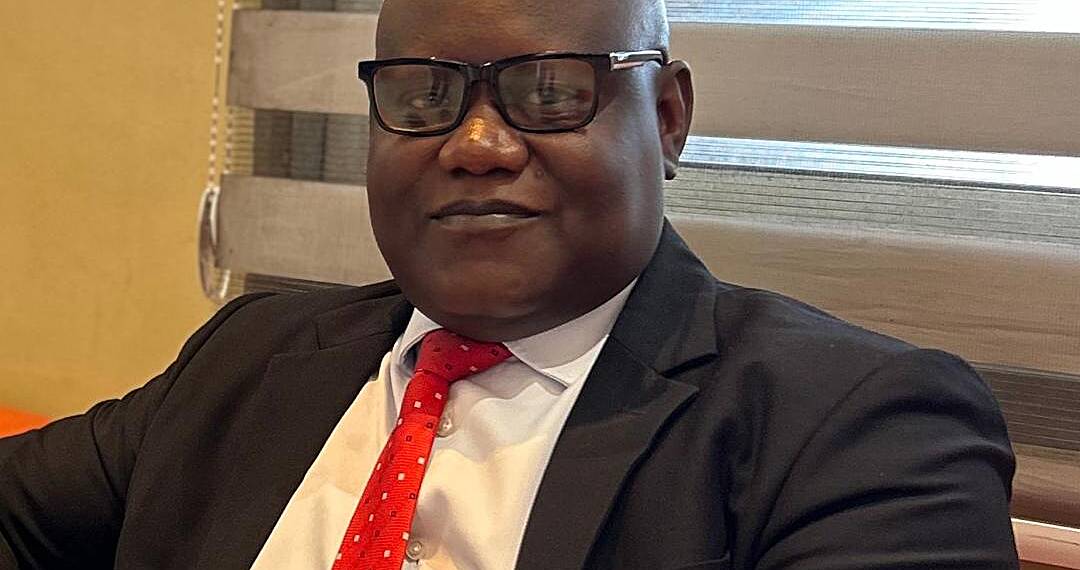In today’s volatile business environment, the pressure on corporate treasurers has never been greater. Shifting economic conditions, post-pandemic recovery challenges, and the impact of geopolitical uncertainty on global trade have redefined the expectations placed on treasury functions. Treasurers are no longer seen simply as custodians of liquidity or back-office operatives. They now play a central role in shaping a company’s financial resilience and strategic direction – balancing short-term funding needs with long-term capital planning, risk management, and sustainable growth. But for treasurers to deliver on these demands, they need more than basic banking services. They need real partners.
What should treasurers expect – and insist on – from their bankers? What distinguishes a transactional relationship from a strategic one? The answers lie in the quality of support, insight, and innovation bankers are willing to bring to the table.
Strategic Advisory Over Salesmanship
Too often, corporate banking relationships are built around product pitches rather than meaningful advice. But for treasurers navigating complex financial decisions, a transactional approach simply does not cut it. What treasurers need from their bankers is strategic insight – a clear understanding of their business model, the pressures they face, and the opportunities they are trying to seize. Salespeople who focus narrowly on selling the next loan or pushing the latest product are unlikely to earn a seat at the table.
Instead, treasurers expect relationship managers who can connect the dots: helping them anticipate liquidity risks, think through capital allocation decisions, or weigh financing options in light of market shifts. This requires bankers to move beyond surface-level conversations and become trusted advisers – bringing industry knowledge, cross-market intelligence, and the ability to see around corners.
This shift is already under way. A recent Accenture study found that nearly 80% of treasurers are now expected to focus on enterprise value creation, a marked departure from their traditional operational roles. It’s a signal that the modern treasurer is no longer just a gatekeeper for liquidity, but a key player in shaping strategy – and bankers need to evolve accordingly.
It is this shift – from salesmanship to strategic partnership – that defines real value. Bankers who show up only when there is a transaction to close rarely build lasting relationships. Those who bring insights, foresight, and solutions do.
Tailored Cash Management, Not Templates
Cash is the lifeblood of every business, and treasurers are its stewards. Their ability to manage liquidity effectively, optimise working capital, and maintain visibility over funds is central to the company’s financial health. Yet too often, banks respond to these needs with standardised cash management products that fail to reflect the specific demands of different industries, business models, and growth stages.
Treasurers should expect better. Whether it involves managing cross-border receivables, navigating seasonal cash cycles, or integrating complex payment systems across subsidiaries, cash management solutions must be built around the operational realities of each business. That includes tools such as automated sweeping, physical or notional cash pooling for interest optimisation, and real-time balance visibility through secure digital channels.
This is more than a matter of convenience. According to PricewaterhouseCoopers’ 2023 Global Treasury Survey, cash and liquidity management remains the top strategic priority for corporate treasurers worldwide, with growing demand for real-time forecasting and advanced cash concentration techniques. These capabilities are no longer considered value-adds, they are essential infrastructure.
The right solutions are not just operationally efficient – they are strategic. They help treasurers unlock trapped liquidity, reduce idle balances, and ultimately support broader objectives around profitability and capital efficiency. Banks that succeed in this space are those that continuously adapt their offerings to the evolving needs of the client – not those clinging to legacy models.
Digital Tools That Drive Efficiency
If the coronavirus pandemic accelerated one shift across corporate finance, it was the transition to digital systems. For treasury teams, that transformation is not simply about convenience; it is about efficiency, control, and resilience. Manual, paper-based processes are fast becoming obsolete, as treasurers seek digital solutions that streamline core functions such as payments, collections, and reconciliations.
Banks must be ready to support this shift; not only by offering digital platforms, but by ensuring those platforms are secure, reliable, and fully integrated with internal systems. Automation is no longer a luxury; it is the means by which treasurers reduce operational risk and reclaim time for strategic planning. When payment runs, reconciliations, and liquidity forecasts can be executed without human bottlenecks, the treasury function becomes more agile and future ready.
This transformation is well under way. According to PricewaterhouseCoopers’ 2024 CFO Pulse Survey, 68 percent of Chief Financial Officers are investing in treasury automation and digital infrastructure as a priority. A separate Accenture report found that adoption of digital treasury platforms has more than doubled since 2020, driven by the need for real-time insight and scalable operations.
As data security becomes an ever-greater concern, treasurers are right to demand that banks invest in robust cybersecurity infrastructure. The cost of a breach is not only financial, it is also reputational. In a digital-first world, trust begins with security.
Transparency Builds Trust
For corporate treasurers tasked with safeguarding corporate funds and driving financial efficiency, unclear pricing and hidden fees are not merely irritations – they are red flags. The relationship between a company and its bank must be grounded in transparency, starting with how services are priced and how performance is measured.
Treasurers should expect a detailed and consistent breakdown of all banking charges, from transaction fees to account maintenance costs. Unexpected charges undermine trust and complicate internal reporting. Beyond clarity, competitiveness matters too. Whether it involves interest rates, foreign exchange spreads, or investment returns, treasurers need to understand how their terms compare to market standards – and banks should be prepared to facilitate that discussion.
A bank that avoids these conversations is not protecting its margins – it is eroding the relationship. And in treasury, relationships are built not just on service delivery, but on openness and accountability.
Responsiveness That Goes Beyond the Crisis
Even the most advanced treasury solutions fall short if they are not backed by attentive, responsive service. For corporate treasurers, the strength of a banking relationship is often measured in moments of urgency – when market conditions shift unexpectedly, liquidity tightens, or a critical transaction needs to be executed without delay. In these moments, accessibility and speed are paramount.
Banks must ensure that treasurers have direct contact with experienced professionals who understand the nuances of their business and can act decisively. But responsiveness is not only about crisis management. Treasurers place equal value on proactive engagement: regular check-ins, constructive feedback loops, and forward-looking conversations that help identify risks and unlock opportunities before they become urgent.
The best banking relationships function as genuine partnerships – where the bank operates as an extension of the treasury team. That level of service cannot be automated or outsourced. It is built on continuity, trust, and the consistent presence of people who are invested in the long-term success of the client.
Aligning with Environmental, Social, and Governance Priorities
Environmental, social, and governance considerations are no longer peripheral concerns – they are fast becoming central to how businesses define risk, attract capital, and demonstrate accountability to stakeholders. As boards and investors place greater emphasis on sustainability, treasury teams are being called upon to reflect these priorities in their financing decisions, investment guidelines, and overall risk posture.
Banks must move in step. Treasurers now expect access to instruments such as sustainability-linked loans and green bonds, where terms are tied to measurable environmental or social outcomes. But products alone are not enough. Banks should also be prepared to offer practical advice on how treasury policies and operations can align with broader environmental, social, and governance strategies – from counterparty selection to reporting frameworks.
This shift is already visible. McKinsey research highlights the growing role of treasury in structuring sustainability-linked finance and aligning capital allocation with corporate values. PricewaterhouseCoopers’ Global Treasury Survey echoes this, noting that more than 40 percent of treasurers now engage directly with green financing instruments as environmental, social, and governance principles continue to influence corporate finance decisions.
Alignment, however, must be mutual. Treasurers have every right to scrutinise the sustainability credentials of their banking partners – how they operate, who they fund, and whether they uphold the same values being asked of their clients. Ethical practice, transparency, and measurable action are no longer just desirable – they are expected.
The demands placed on corporate treasurers have expanded significantly, and so too must the support they receive from their banking partners. This is no longer a relationship defined by transactions or convenience. It is a strategic alliance – one that shapes a company’s financial resilience, operational agility, and long-term growth. Treasurers should expect more: insightful advisory, tailored solutions, secure and intelligent digital tools, transparent pricing, and alignment on values that extend beyond the balance sheet.
For banks, this is a clear call to action. Those that continue to sell products in isolation will struggle to maintain relevance. Those that listen, adapt, and deliver real partnership – grounded in trust, expertise, and shared purpose – will stand out in a market that is increasingly sophisticated and unforgiving.


















